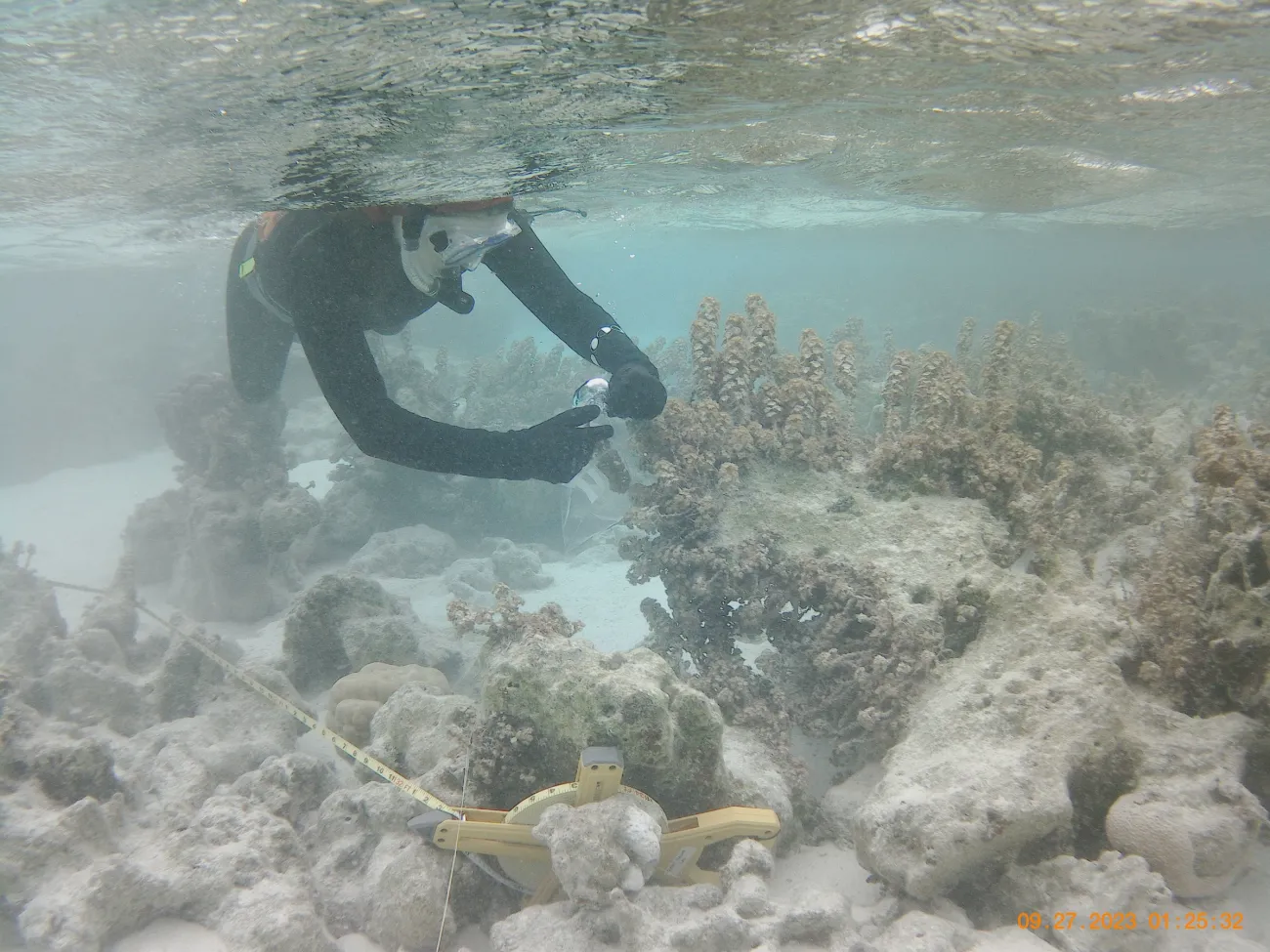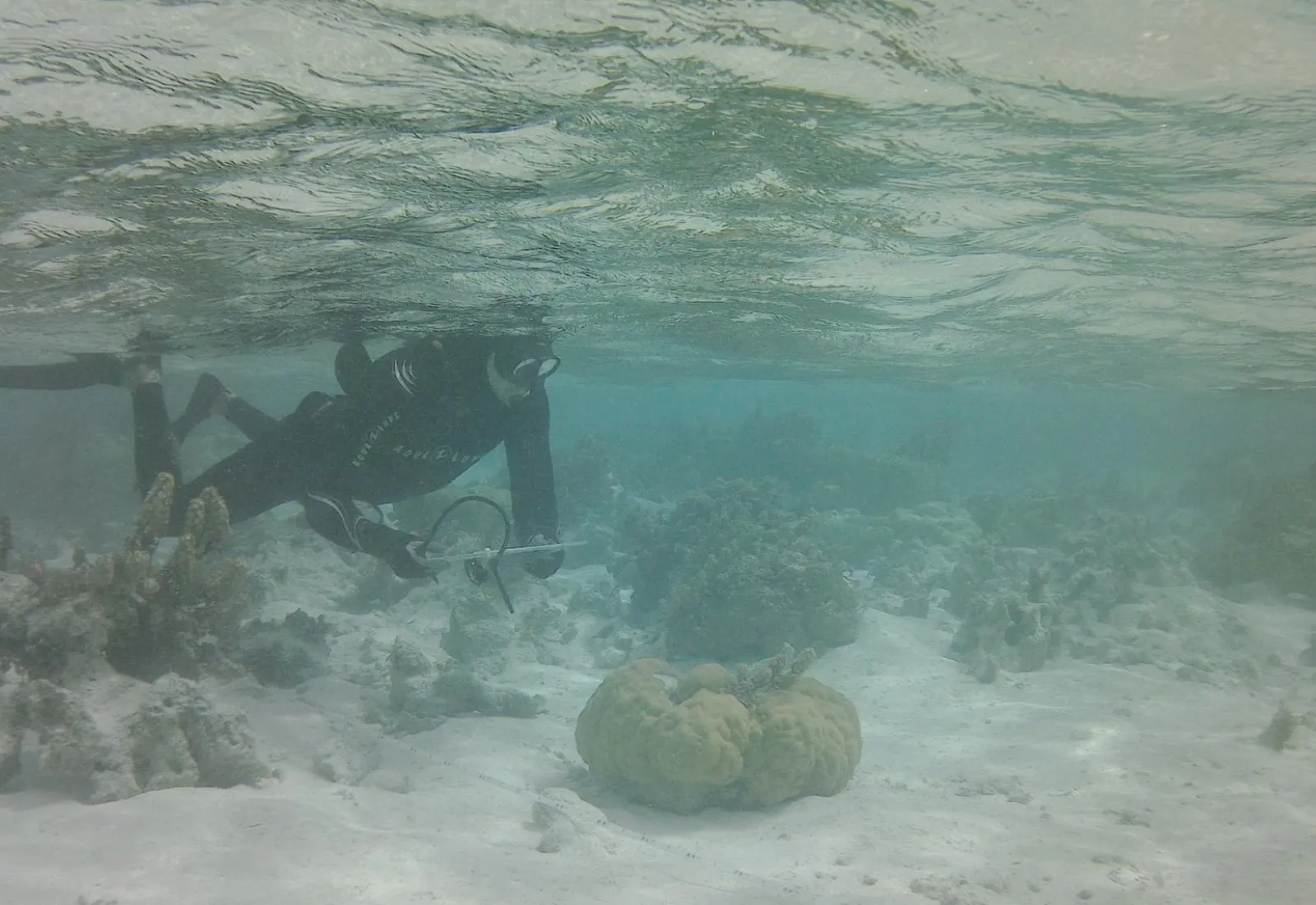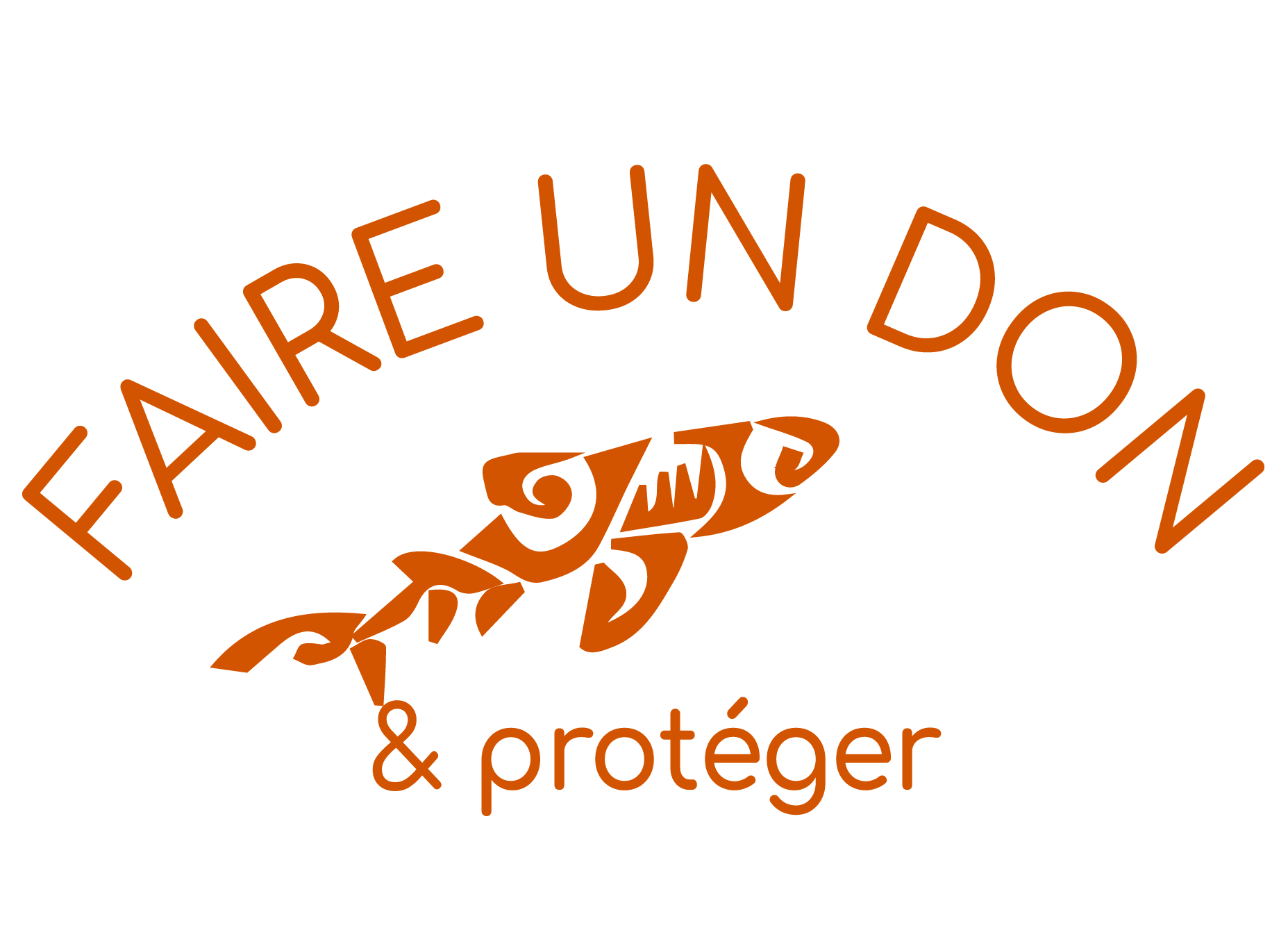In 2023 two PhD students completed fieldwork for the Seascape Ecology project. Courtney Stuart studies nutrient cycling across the land-sea interface in Teti’aroa using a combination of landscape ecology theory, stable isotope analysis, and GIS-based approaches. During her September 2023 fieldwork in Teti’aroa, she collected samples of brown and green algae (Turbinaria and Halimeda).
The samples were weighed to estimate wet biomass and then dried and ground in preparation for subsequent laboratory analysis of nutrient content and stable nitrogen isotopes. Ecological transect surveys of benthic cover and fish communities also complemented Courtney’s algae sampling.
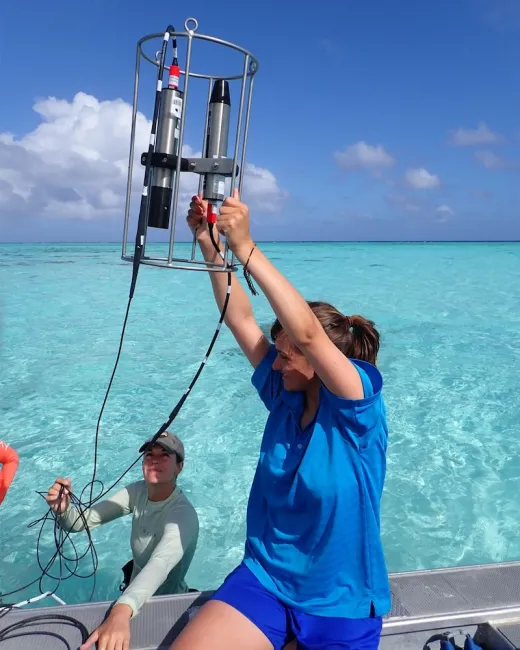 setting up the sensor
setting up the sensor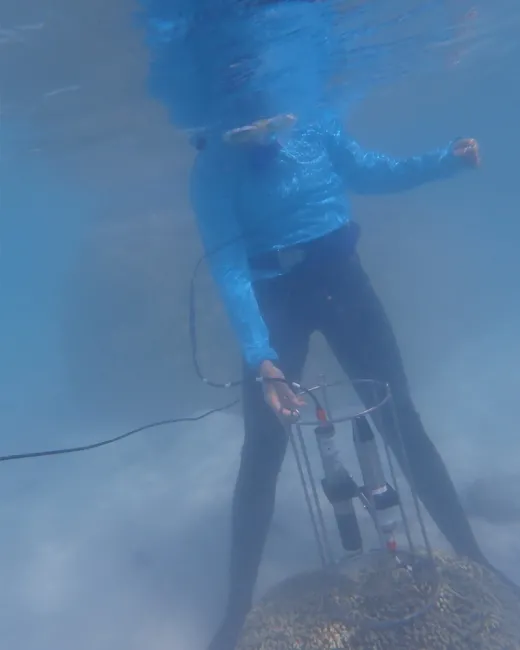 sensor placed in the lagoon
sensor placed in the lagoon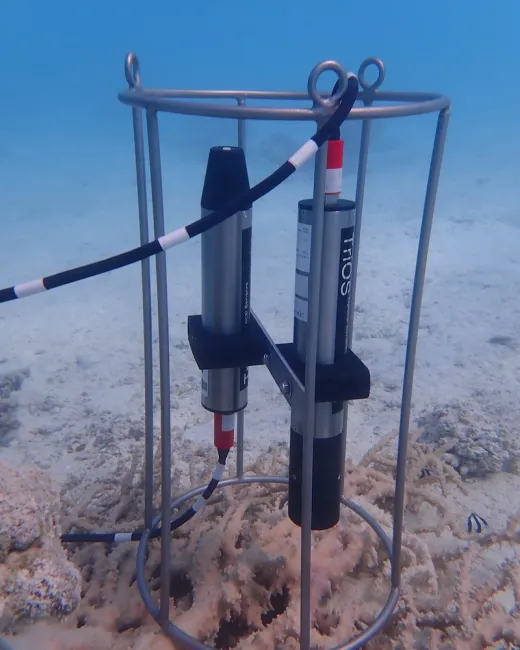 sensor at work
sensor at work
Pirta Palola is focused on marine remote sensing. During her fieldwork at Teti’aroa, she conducted hyperspectral radiometric measurements of benthic and surface reflectance. Additionally, she measured water quality parameters such as chlorophyll-a concentration, turbidity, and absorption coefficients of phytoplankton and non-algal particulate matter. Understanding the coral spectral signatures and the water column optical properties allows for an accurate correction between reflectance from the benthos and the water column. Hence, this data forms the basis for the physics-based remote sensing model for mapping land-sea connectivity and seascape spatial patterns at Teti’aroa.
